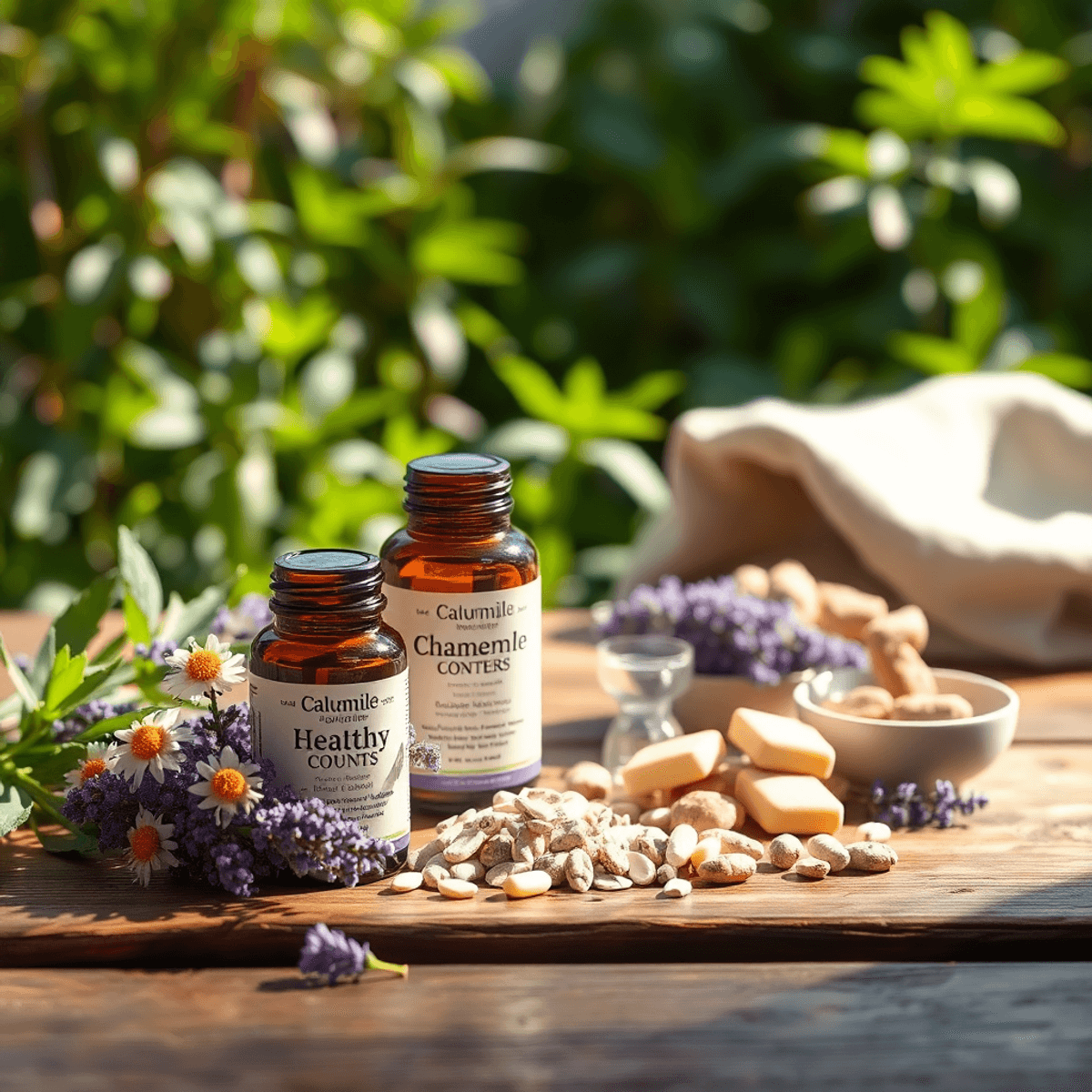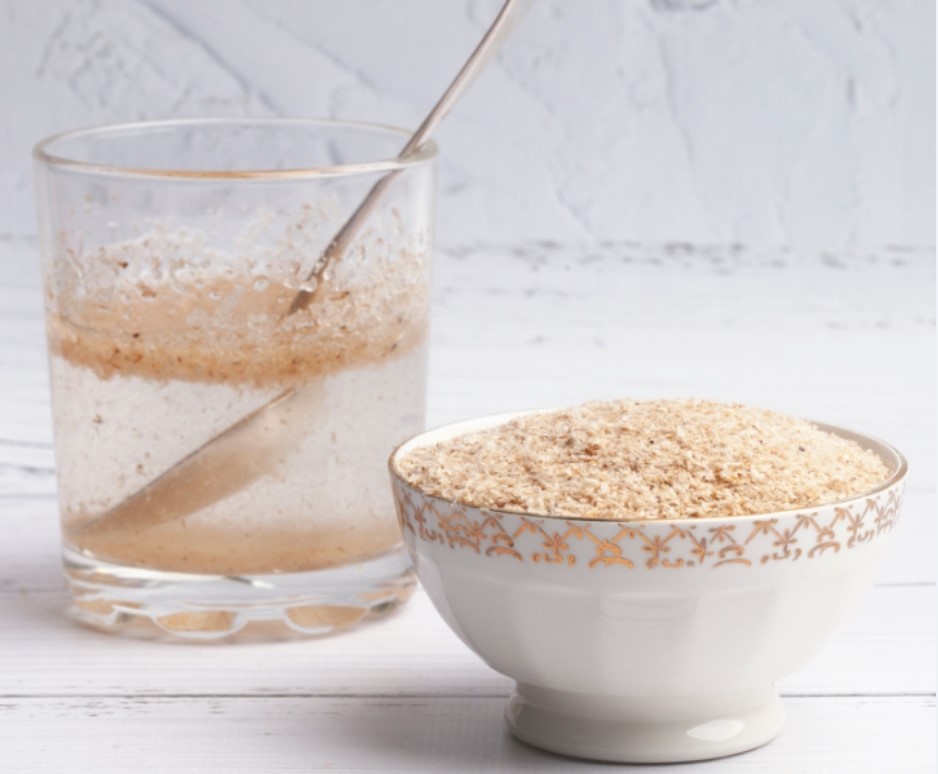Living with anxiety can be challenging, pushing many to seek effective relief options. While Xanax stands as a commonly prescribed medication for anxiety management, its potential risks have led countless individuals to explore safer alternatives available over the counter.
This comprehensive guide delves into natural and accessible options for anxiety relief without the need for a prescription. You’ll discover various OTC alternatives that can help manage anxiety symptoms while avoiding the concerning side effects associated with Xanax use, such as:
- Physical and psychological dependence
- Memory problems
- Drowsiness and coordination issues
- Risk of severe withdrawal symptoms
Whether you’re looking to avoid prescription medications or seeking a gentler approach to anxiety management, understanding these OTC alternatives can empower you to make informed decisions about your mental health. We’ll explore evidence-based options, from herbal supplements to lifestyle modifications, that can help you build a sustainable anxiety management strategy tailored to your needs.
In addition to these options, it’s worth considering how overall wellness can impact mental health. For instance, women’s health issues often intertwine with anxiety levels. Addressing these concerns through proper care and preventive measures can lead to improved mental well-being.
Moreover, maintaining a healthy lifestyle plays a crucial role in managing anxiety. Incorporating healthy snacks into your diet can not only assist in managing conditions like diabetes but also contribute to overall physical health, which in turn can positively influence mental health.
Furthermore, understanding the latest breakthroughs in skincare technology can enhance your beauty routine and boost self-esteem, indirectly helping to alleviate some anxiety symptoms.
Lastly, during times of seasonal change when stress levels might rise due to various factors, exploring proven ways to boost immunity could be beneficial. A strong immune system often correlates with better overall health and wellness, further assisting in effective anxiety management.
By integrating these holistic approaches into your life alongside exploring OTC alternatives for anxiety relief, you can create a more balanced and sustainable strategy for managing your mental health.
Understanding Xanax and Its Risks
Xanax (alprazolam) is one of the most commonly prescribed medications in the benzodiazepine class, used to treat anxiety disorders and panic attacks. This medication works by enhancing the effects of GABA, a natural chemical in the brain that promotes calmness and relaxation.
While Xanax is effective for many patients, its use comes with significant risks:
Physical Side Effects:
- Drowsiness and fatigue
- Dizziness and lightheadedness
- Slurred speech
- Coordination problems
- Changes in appetite
- Memory issues
- Blurred vision
Mental and Cognitive Effects:
- Confusion
- Difficulty concentrating
- Mood changes
- Depression symptoms
- Brain fog
- Decreased alertness
The risk of dependence is a major concern with Xanax use. Your body can develop tolerance within weeks, requiring higher doses to achieve the same therapeutic effects. Physical dependence often leads to withdrawal symptoms when attempting to stop or reduce usage.
Signs of Xanax Dependence:
- Needing larger doses for anxiety relief
- Failed attempts to quit or cut back
- Experiencing withdrawal symptoms between doses
- Continuing use despite negative consequences
- Spending significant time obtaining or recovering from use
The withdrawal process from Xanax can be particularly challenging and dangerous. Symptoms may include:
- Severe anxiety and panic attacks
- Tremors and seizures
- Insomnia
- Heart palpitations
- Sweating
- Nausea and vomiting
Long-term Xanax use has been linked to cognitive decline and increased risk of dementia in older adults. Research suggests that extended use may impact memory formation and recall abilities, with some effects potentially persisting after discontinuation.
These risks highlight the importance of exploring alternative treatments for anxiety management, particularly for individuals seeking long-term solutions. For instance, menopause-friendly nutrition has shown emerging benefits that could alleviate some anxiety symptoms, especially during menopause.
Moreover, weight management medications like Phentermine or Ozempic could also play a role in improving overall mental health by addressing physical health concerns such as obesity or metabolic syndrome. A detailed comparison of Phentermine and Ozempic could provide valuable insights into which might be more suitable for an individual’s needs.
On the other hand, if you’re already on Ozempic and are experiencing prolonged fullness after meals, understanding why this happens could help you manage your diet better.
Additionally, exploring fasting methods like the 96-hour fast, known for their potential gut health benefits, might offer another avenue for managing anxiety through dietary means.
Lastly, if diabetes management is also a concern alongside anxiety, considering treatment options like Sublingual Semaglutide, which is a non-invasive diabetes treatment option that enhances patient compliance while promoting weight loss effectively, could be beneficial.
Exploring Herbal Supplements as OTC Alternatives to Xanax
Natural herbal supplements offer a gentler approach to anxiety management. These plant-based remedies have been used for centuries across different cultures to promote relaxation and emotional well-being.
Popular Herbal Options for Anxiety Relief:
- Chamomile: This gentle herb promotes relaxation through compounds that bind to the same brain receptors as Xanax. Research shows drinking chamomile tea or taking supplements can reduce anxiety symptoms and improve sleep quality.
- Valerian Root: Known as “nature’s tranquilizer,” valerian root increases GABA levels in the brain, creating a calming effect similar to prescription anti-anxiety medications but without the strong side effects.
- Lavender: Studies demonstrate that lavender supplements can reduce anxiety levels comparable to low-dose benzodiazepines. The herb’s active compounds work through the serotonin system to create a sense of calm.
- Passionflower: This traditional remedy enhances GABA production in the brain, helping reduce racing thoughts and nervous tension without causing drowsiness.
- Kava: Pacific Islander communities have long used kava for its potent anxiety-reducing properties. Research supports its effectiveness in treating generalized anxiety disorder.
- Ashwagandha: This adaptogenic herb helps the body resist stress by lowering cortisol levels and promoting emotional balance. Studies show it can significantly reduce anxiety scores in patients with anxiety disorders.
Choosing Quality Supplements
The effectiveness of herbal supplements depends heavily on their quality and preparation. Look for:
- Third-party testing certification
- Standardized extracts
- Clear ingredient listings
- Manufacturing date and expiration information
- GMP (Good Manufacturing Practice) certification
Your healthcare provider can guide you in selecting appropriate herbal supplements and determining proper dosages. They’ll also help identify potential interactions with other medications you might be taking.
Switching from prescribed medications like Xanax to herbal alternatives should be done under medical supervision. For instance, if you’re considering switching from Jardiance to Ozempic, it’s crucial to understand their effectiveness and consult your healthcare provider about the potential risks, including gastrointestinal side effects associated with Ozempic such as bowel injuries[^1^][^2^].
In addition, incorporating dietary changes alongside these herbal supplements could further enhance your overall well-being. A balanced diet plays a vital role in maintaining optimal health[^3^], while certain drinks like butterfly milk may offer additional health benefits[^4^].
Lastly, it’s essential to remember that positive childhood experiences can significantly influence our overall health and resilience against adversity[^5^].
For those seeking specific herbal supplements known to alleviate anxiety, research suggests several options could be beneficial. Furthermore, scientific studies have shown promising results regarding the usage of certain herbs for anxiety relief, reinforcing the idea that natural alternatives can be effective.
Other Non-Medication Strategies for Anxiety Management
Managing anxiety extends beyond supplements and medications. A comprehensive approach incorporating lifestyle changes and therapeutic techniques can significantly reduce anxiety symptoms.
Cognitive Behavioral Therapy (CBT)
CBT is a widely used therapeutic technique that focuses on identifying and changing negative thought patterns. It helps individuals develop coping mechanisms, teaches practical problem-solving skills, and restructures anxiety-inducing thoughts. CBT can be accessed through in-person or online therapy sessions, making it flexible and convenient for many.
Mindfulness Practices
Mindfulness practices are effective tools for managing anxiety by promoting present-moment awareness and reducing stress. These practices include daily meditation sessions lasting 5 to 20 minutes, deep breathing exercises, body scan techniques, and guided imagery for relaxation. Incorporating these mindfulness techniques into your daily routine can help cultivate a sense of calmness and improve overall well-being.
Physical Exercise Benefits
Regular physical exercise has numerous benefits for both physical and mental health. It releases endorphins, which are natural mood elevators, reduces muscle tension, improves sleep quality, and boosts self-confidence. To reap these benefits, aim for at least 30 minutes of moderate activity five times a week.
These strategies work best when combined with your chosen OTC alternatives. For instance, Jardiance, a medication often used for Type 2 diabetes management, can also have benefits for anxiety relief when incorporated into a comprehensive treatment plan. Many people report enhanced anxiety relief when incorporating multiple approaches into their daily routine. The key lies in consistency – establishing regular habits around these practices creates a strong foundation for anxiety management.
Research shows individuals who combine therapeutic approaches with other anxiety management methods experience better long-term results compared to those relying solely on supplements or medications. Also, it’s crucial to remember the role of proper hydration in our overall health and wellness, including mental health. Proper hydration can significantly impact cognitive performance and stress levels.
Moreover, improving sleep quality is another essential aspect of managing anxiety. Quality sleep can greatly enhance the effectiveness of other anxiety management strategies. Lastly, while exploring various options, some individuals may consider alternative treatments such as ketamine therapy. Understanding how fast ketamine works for anxiety could provide valuable insights for those considering this route.
It’s also worth noting that certain medications like SSRI antidepressants have shown promise in treating anxiety disorders. According to a study published in the JAMA Network, SSRIs can be effective in managing various forms of anxiety.
Prescription Alternatives to Consider with Your Doctor’s Guidance
When OTC alternatives don’t provide sufficient relief for severe anxiety symptoms, your healthcare provider might recommend prescription medications. These medications require careful consideration and professional supervision.
Common prescription alternatives include:
- Klonopin (Clonazepam): A longer-acting benzodiazepine that can help manage persistent anxiety symptoms throughout the day
- Ativan (Lorazepam): Known for its rapid onset, making it effective for acute anxiety episodes
- Valium (Diazepam): Often prescribed for both anxiety and muscle tension, with effects that can last several hours
These medications work similarly to Xanax by enhancing GABA neurotransmitter activity in your brain, producing a calming effect. Your doctor will consider several factors before prescribing:
- Your specific anxiety symptoms
- Medical history
- Potential drug interactions
- Risk factors for dependence
- Duration of intended use
The prescribed dosage varies based on individual needs, severity of symptoms, and response to treatment. Your healthcare provider will typically start with the lowest effective dose to minimize side effects while maintaining therapeutic benefits.
Regular check-ups help monitor your progress and adjust treatment as needed. During these visits, it’s essential to discuss any other health conditions you may have or medications you’re taking. For instance, if you’re considering Ozempic for weight management while dealing with anxiety, it’s crucial to consult your doctor about its safety and potential interactions.
Moreover, incorporating lifestyle changes such as regular exercise can significantly enhance your mental health and complement the effects of prescribed medication. Exercise is known to release endorphins which can naturally alleviate some anxiety symptoms.
In addition to medication and exercise, dietary modifications may also play a role in managing anxiety. Following a plant-based diet has been associated with numerous long-term health benefits including improved mental well-being.
Your doctor might also recommend combining prescription medication with other treatment approaches such as mindfulness or cognitive behavioral therapy for optimal results. It’s essential to maintain open communication with your healthcare provider about all aspects of your treatment plan including any concerns regarding potential dependencies on prescribed medications.
Conclusion
Managing anxiety requires a comprehensive strategy that combines multiple approaches for optimal results. While Over The Counter Xanax alternatives offer potential benefits, they work best as part of a broader treatment plan. Your anxiety management toolkit should include:
- Natural supplements and herbs
- Regular physical activity
- Stress-reduction techniques
- Healthy sleep habits
- Balanced nutrition
- Strong social connections
The journey to finding effective anxiety relief is deeply personal. What works for one person might not work for another. Always consult healthcare professionals before starting any new treatment regimen, whether it’s herbal supplements or lifestyle changes.
Remember that anxiety management isn’t about finding a single “magic solution.” It’s about building a sustainable, personalized approach that addresses both the symptoms and root causes of your anxiety. By combining OTC alternatives with lifestyle modifications such as incorporating dietary changes or addressing potential gut health issues like Intestinal Methanogen Overgrowth, along with professional guidance, you can develop an effective strategy for long-term anxiety relief.
FAQs (Frequently Asked Questions)
What are the potential risks associated with using Xanax for anxiety relief?
Xanax, also known as alprazolam, is a benzodiazepine commonly prescribed for anxiety disorders. While effective, it carries risks such as dependence, abuse, side effects like drowsiness, dizziness, and cognitive impairment, as well as long-term issues including tolerance development and withdrawal symptoms upon discontinuation.
What over-the-counter (OTC) herbal supplements can be used as alternatives to Xanax for anxiety?
Several herbal supplements have been traditionally used for anxiety relief and serve as OTC alternatives to Xanax. These include chamomile, valerian root, lavender, passionflower, kava, and ashwagandha. It’s important to choose high-quality supplements from reputable sources and consult with a healthcare professional before use.
How can non-medication strategies complement OTC alternatives in managing anxiety?
Non-medication strategies such as cognitive-behavioral therapy (CBT), mindfulness practices, and regular exercise can effectively complement the use of OTC alternatives to Xanax. These approaches help manage anxiety symptoms holistically by addressing both mental and physical aspects of anxiety.
When should one consider prescription alternatives like Klonopin, Ativan, or Valium instead of OTC options?
Prescription medications such as Klonopin, Ativan, and Valium may be considered under a healthcare professional’s guidance if over-the-counter options are insufficient in managing severe anxiety symptoms. These medications require careful monitoring due to their potential risks and side effects.
Why is it important to adopt a holistic approach towards anxiety management beyond just medications or OTC alternatives?
Adopting a holistic approach towards anxiety management is crucial because it encompasses various treatment modalities including lifestyle changes, therapy, and medication when necessary. This comprehensive strategy ensures more effective symptom control and addresses underlying causes rather than relying solely on medications or OTC substitutes like Xanax alternatives.
What precautions should be taken when using herbal supplements as OTC alternatives to Xanax?
When using herbal supplements such as chamomile or valerian root as OTC alternatives to Xanax, it’s essential to select products from reputable sources to ensure quality and safety. Additionally, consulting with healthcare professionals before starting any supplement is important to avoid interactions with other medications and to tailor treatment appropriately.






